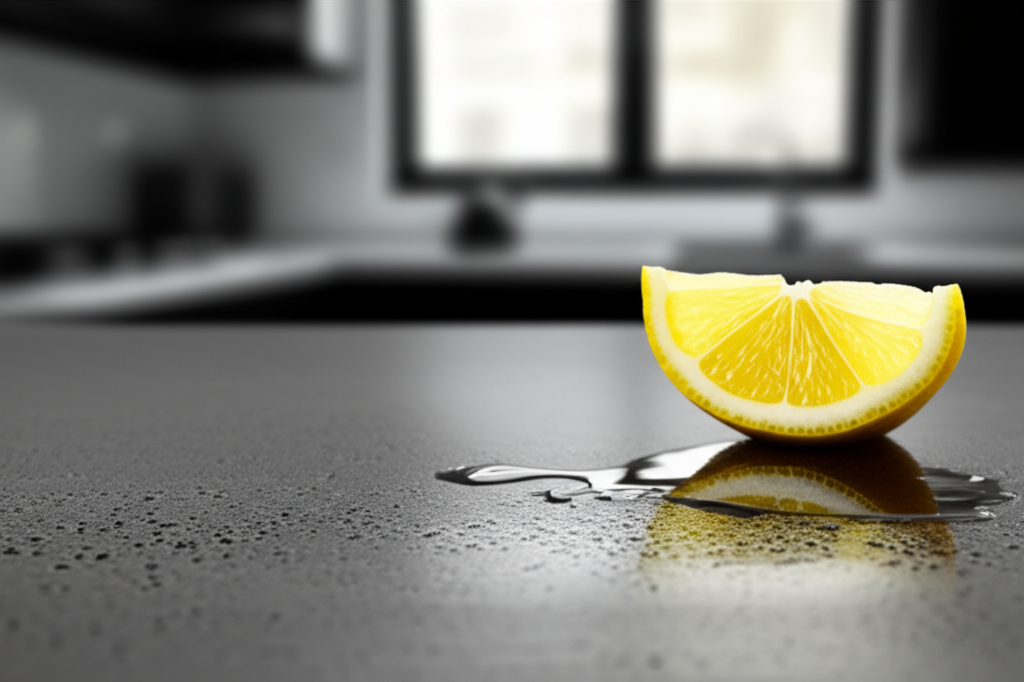Are you dreaming of sleek, modern concrete countertops for your kitchen or bathroom? They look fantastic in magazines, but what if I told you there's a hidden issue that could turn your dream into a costly nightmare? Many concrete countertops, especially those marketed as "quartzite," are prone to etching, staining, and other problems that suppliers often fail to mention. This article will expose the "dirty little secret" of concrete countertops and equip you with the knowledge to make an informed decision before it's too late.
What's the Allure of Concrete Countertops?
Concrete countertops have surged in popularity, and for good reason. They offer:
- Modern Aesthetic: A minimalist and industrial-chic look that complements contemporary designs.
- Customization: Concrete can be molded into various shapes, sizes, and colors.
- Unique Appearance: Each concrete slab is unique, offering a one-of-a-kind look.
But beneath the surface, there's a potential problem lurking.
What is the "Dirty Little Secret" About Concrete Countertops?
The "dirty little secret" is that many concrete countertops – particularly those sold as quartzite – are not as durable and stain-resistant as you might think. Often, these slabs are infused with resins to enhance their stability and appearance. While this makes them marketable, it also makes them vulnerable to etching.
What is Etching and Why Should I Care?
Etching is a chemical reaction that occurs when acidic substances come into contact with the countertop surface. Common culprits include:
- Lemon juice
- Vinegar
- Tomato sauce
- Wine
- Certain cleaning products
The acid eats away at the resin, leaving a dull, ghost-like mark on the surface. Etching is especially noticeable on dark-colored concrete.
Why Are Resins Used in "Quartzite" Countertops?
Quartzite is a metamorphic rock formed from sandstone. Ideally, it should be very durable. However, some quartzite slabs are brittle or porous. To overcome this, suppliers infuse them with resins. These resins fill in imperfections and make the stone stronger. However, these resins are often the source of the etching problem.
Is All Quartzite Etch-Prone?
No, not all quartzite etches. True quartzite is highly durable and resistant to etching. The problem arises when the stone is mislabeled or when low-quality quartzite is treated with resins that react poorly to acids.
How Can I Tell if a Concrete Countertop is Prone to Etching?
Here's how to protect yourself:
- Ask Questions: Inquire specifically about resin treatments. If the supplier is evasive, be wary.
- Perform an Acid Test: Obtain a sample of the countertop material and apply a small amount of lemon juice or vinegar. Let it sit for several hours, then wipe it clean. If a dull spot appears, the stone is likely to etch.
- Check the Labeling: Be skeptical of stones labeled as "quartzite." Look for independent certifications or guarantees of durability.
- Consider the Finish: Honed or leathered finishes are less likely to show etching than high-gloss finishes. However, they also may not showcase the stone's natural beauty as much.
- Research the Supplier: Look for reviews and testimonials from other customers.
What Are My Options if My Concrete Countertop Etches?
Unfortunately, etching is difficult to reverse completely. Here are some potential solutions:
- Re-Polishing: This can remove the etched layer, but it's expensive and the problem will likely return.
- Clear Coating: Products like Clearstone can provide a protective layer, but they may alter the appearance of the countertop and may not withstand high heat.
- Acceptance: Some homeowners choose to embrace the imperfections and live with the etched surface. This can be a viable option, especially for those who prefer a more rustic or lived-in look.
Are There Alternatives to Concrete Countertops?
Yes! If you're concerned about etching and durability, consider these alternatives:
- Granite: A naturally durable stone that is resistant to etching and staining.
- Manufactured Quartz: A blend of quartz aggregate and resin that is engineered for durability and low maintenance.
- Solid Surface: Materials like Corian are non-porous and resistant to stains and scratches.
Frequently Asked Questions
Will sealing my concrete countertop prevent etching?
Sealing can help protect against staining, but it won't necessarily prevent etching. Etching is a chemical reaction that affects the resin, not just the surface of the stone.
Is there a specific type of resin that is more resistant to etching?
The specific ingredients in resins vary by quarry and country, making it difficult to pinpoint which are most resistant. The best approach is to avoid resin-treated concrete altogether or choose a countertop material known for its durability.
How much does it cost to repair etching on a concrete countertop?
The cost varies depending on the extent of the damage and the chosen repair method. Re-polishing can cost hundreds or even thousands of dollars, while clear coating can be even more expensive.
Conclusion: Make an Informed Choice
Concrete countertops can be a beautiful addition to your home, but it's crucial to be aware of the potential pitfalls. By understanding the "dirty little secret" of etching and taking the necessary precautions, you can make an informed decision and avoid costly mistakes. Don't let the allure of a trendy countertop blind you to the realities of maintenance and durability. Do your research, ask questions, and choose a countertop that fits your lifestyle and budget.
Next Step: Before making any decisions, visit multiple stone suppliers, compare samples, and thoroughly investigate the properties of each material. Knowledge is power!

